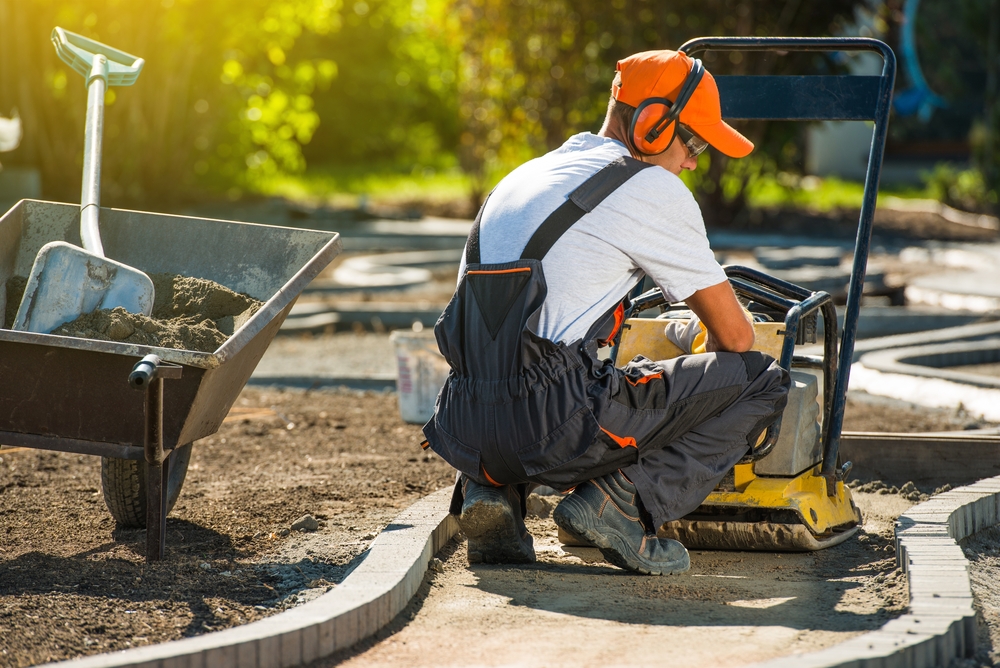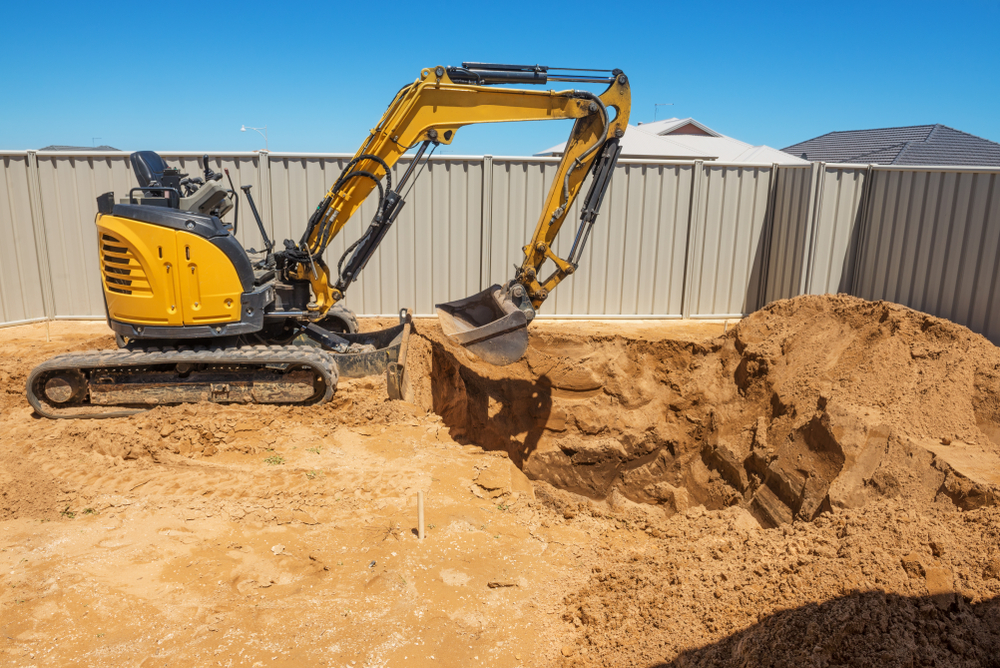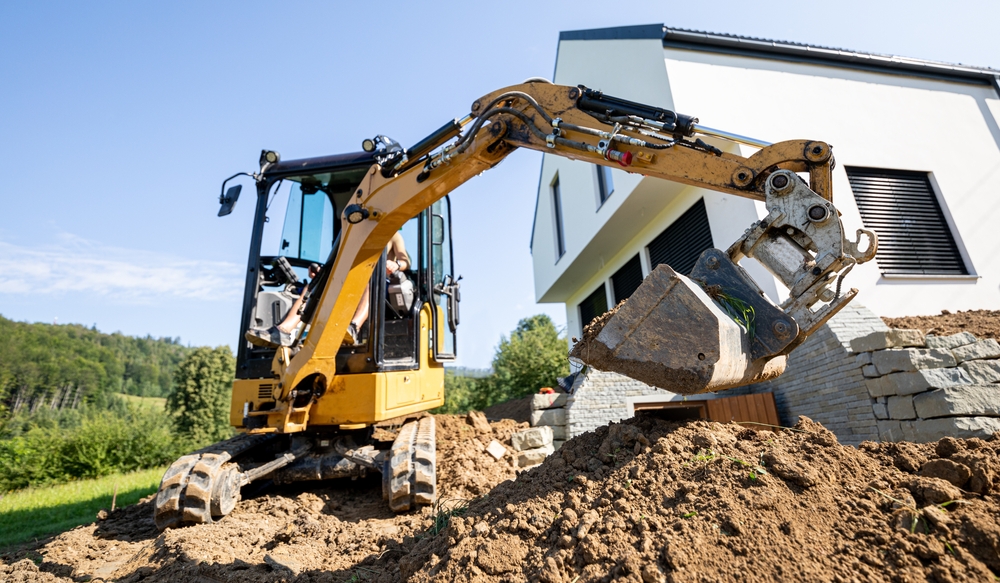
Dry hire is the act of hiring equipment or plant machinery without a driver or operator to go with it. When you choose this option, you or your team are fully responsible for operating the equipment and using it to get the job done. With dry hire, you don’t need to pay an operator to finish your project, and you can streamline the process, investing the extra time and cash you save into the work.
While you don’t need a special licence or even existing experience to dry hire machinery, you still have to be aware of machine safety standards. Both suppliers of dry hire machinery and its users have a responsibility to ensure the equipment is in a safe condition to use and any risks are prepared for. Adhering to safety standards protects you and your employees, ensures compliance with legal regulations and helps avoid delays and interruptions. Whether you’re dry hiring for a week or a year, knowing about equipment safety standards helps you complete the work better and more efficiently.
With over a decade of earthmoving experience behind us, Ryno Hire has extensive knowledge in carrying out excavation and earthmoving jobs, providing the right equipment to complement them. Here’s our guide to meeting machine safety standards so you can make your backyard, DIY or home renovation project a success.
What Are Machinery Safety Standards?
Australia has strict legislation that governs machinery safety standards. These standards are developed in line with international guidelines to ensure consistency between countries, and many are based on the globally recognised ISO standards set by the International Organisation for Standardization. They are set by professionals in various fields, from engineers to industry leaders, all bringing their safety and equipment knowledge to the table.
While Workplace Health and Safety Legislation is a state and territory responsibility, there are certain machine safety standards that are relevant in all jurisdictions. Machinery suppliers and users alike are required to apply risk management principles to machine operation, ensure a safe work system is in place in relation to machinery, and follow principles of hazard identification, risk assessment and risk control. If you’re dry hiring machinery for your staff to use, you’re classed as a person conducting a business or undertaking (PCBU), and you have a duty of care under the Work Health and Safety (WHS) Act Australia to eliminate or minimise risks to your staff as much as practicable. This involves compliance with WHS regulations.
Following Dry Hire Machinery Safety Standards

Here’s how to follow equipment safety standards when you’ve made the choice to dry hire:
Understand your responsibilities under workplace health and safety law
Both the hirer and the operator have safety responsibilities under the Workplace Health and Safety Act. As a PCBU, you need to make sure the machinery is safe to use and remains so during the term of the project. If you have employees who will be using the equipment, ensure you provide enough training and supervision. Contacting the relevant workplace health and safety regulator in your state can help you stay aware of your responsibilities.
Make sure the machine is in top condition
Making sure the equipment you hire is in good condition is important for meeting these machine safety standards. Check that the machine is properly functioning, with key safety features such as alarms and lockout measures in place. Hiring from a reputable company will help ensure you drive away with a better and more effective machine.
Make sure the machine is right for the job
Hiring a machine that’s not properly suited for the job at hand creates safety issues that are otherwise easy to avoid. Whatever project you’re involved in—landscaping, construction, gardening, or renovating—make sure the equipment is up to the task. Seeking guidance from the hiring company in this regard will help you make the right choice.
Conduct a visual risk inspection
Before accepting the equipment, take a long look to see what kind of shape it’s in and see if you can identify any site-specific risks (e.g. powerlines or ground conditions) that could interfere with its usage.
Follow all safety guidelines
Make sure you keep the machine clean, add fuel as necessary and follow any safety guidelines. Be careful not to exceed the recommended maximum load or speed, or to push the equipment beyond its capabilities.
Document and faults or issues
You always want to return the machinery in the condition you rented it. Communicate breakdowns and faults with the lender and document both this communication and any issues that arise. Keep records of everything from hire agreements to Safe Work Method Statements (SWMS), licences, incident reports, etc.
Dry Hire Machinery at Ryno Hire

If you need an excavator, loader, tipper truck or compactor, you can find all the dry hire machinery you need right here at Ryno Hire.
A local family-owned and operated business, Ryno Hire has reliable, quality dry hire equipment at some of the best rates around, with no additional charge for insurance. Whether you have a construction job you need to complete or a DIY backyard landscaping dream project, Ryno Hire provides exceptional customer service so you can leave with the dry hire equipment that’s right for you.
Our equipment is high-quality and maintained to exceptional safety standards, as well as being cost-effective, reliable and easy to master. Our dry hire process is simple too. All you need is a valid Australian open driver’s licence in order to dry hire any piece of equipment in our range. Short and long-term hires are all welcome—you can hire for as brief a period as one day or for as long as a year. With machines capable of getting through gaps as little as 770mm and under 1600mm heights, there are very few places you can’t go, and very little you can’t do, with a Ryno Hire.
To find out more and start the dry hire process for yourself, call 07 3353 2230, email enquiries@rynohire.com.au or contact the Ryno Hire team online.


